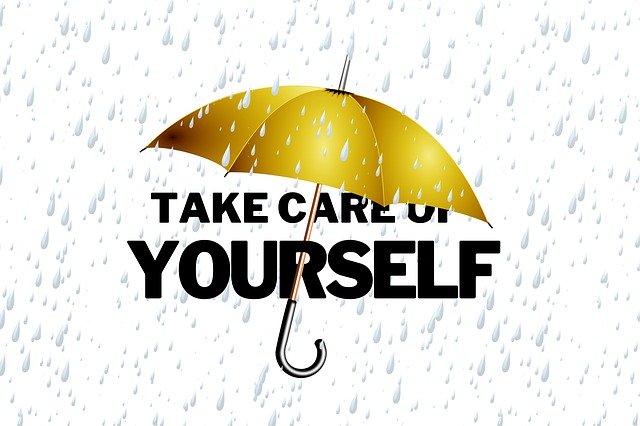Self-Care Makes You a Better Leader

Image by Gerd Altmann from Pixabay
We hear it all the time: if you take care of yourself, you will be a better parent, partner, teacher, coach, etc. because you then have more capacity to care for others. Take flying for example. Adults are instructed to affix their oxygen masks first before assisting children because in an emergency, when the adult or authority figure is prepared, that individual can better protect a child.
This certainly applies to your role as a leader of your company. Leaders have a tendency to self-sacrifice for the good of their employees and businesses. Though well-intentioned, this practice can backfire. One of the themes of our blog is leading by example and fostering work cultures and leveraging core values to set employees up for success. We’ve asked, “Are you putting employees first?” and stated, “Be intentionally empathetic.”
But it’s critical that you take care of yourself–now more than ever during the pandemic– so that you don’t risk failing to accomplish these goals for your staff. The good news is that selflessness and self-care are not mutually exclusive.
Let’s Define Self-Care
Entrepreneur, Rebecca Dickson, wrote in Forbes, “Self-care means taking action to preserve or improve your mental and/or physical health.”
Many psychologists posit that self-care involves getting enough sleep, exercising regularly, being mindful of your diet, and decompressing. There’s loads of evidence to support this, but you know yourself best, and it’s important to ask, “What would make me feel better?”
Look no further than the things you might lament:
- I wish I could spend more time with my family
- If only I could fully unplug from work during the weekend
- I really need to delegate more
Often, the solution is in plain sight. Give yourself permission to try one out, even if it means starting small.
Stress Can Be Damaging
Running a business is stressful, and while you may say it’s what you signed up for, stress can be more damaging than you think. Two of the most common stressors are feelings of uncertainty and lack of control, which couldn’t be more magnified than now as we deal with coronavirus.
Stress isn’t just stress; it is harmful to your physical and emotional health. It negatively impacts personal and professional relationships, mental awareness, memory, and much more. Chronic stress can lead to mental illnesses like depression and anxiety disorders.
To revel in stress is not healthy and nor should it be viewed as a badge of honor.
Actions You Can Take Now
I’ll preface by saying you know yourself best, but below are tried and true self-care practices:
Put Yourself First – What now? Isn’t that being selfish? No. Good leaders seek to fulfill the needs of their employees. Your needs are important, too. Whether that means finding ways to decompress during the work day or setting boundaries, address them so that you can be a more effective leader.
Respect Your Mental Health – If the stress is creating any of the aforementioned problems, consider counseling. Leaders, especially the Type A kinds, fall into the trap of trying to figure it all out on their own. The best leaders surround themselves by talented and competent people for support. It may be worth expanding your support system with behavioral health resources. Seeking help from a therapist is a show of strength.
Meditation – Before you roll your eyes, know this about meditation:
- It doesn’t hurt
- It’s not about repelling your stress; rather it teaches you how to embrace and coexist with it
- It only requires five to ten minutes of your time per day
- Per The Harvard Gazette, “Studies have shown benefits against an array of conditions both physical and mental, including irritable bowel syndrome, fibromyalgia, psoriasis, anxiety, depression, and post-traumatic stress disorder.”
Meditation also strengthens the brain like curls strengthen biceps. Results from fMRI and EEGs show changes in the brain’s grey matter volume, reduced activity in the Me Center (medial prefrontal cortex) of the brain, and stronger connection between brain regions.
Celebrate the Small Wins – The buck may stop with you, but that doesn’t mean you need to be so hard on yourself. Speaking of cliché, a win is a win. Closing on a large deal is superb, but so is making an employee’s day by acknowledging their value. When you take a moment to recognize a small win, you’ll likely feel more motivated and inspired.
You may believe that this is easier said than done. But is it? Think about what you’ve built professionally and the unique value proposition that you execute. That’s challenging stuff, and if you could do that, then setting simple self-care goals should be very manageable.
If you liked this post, please follow us on Facebook, Twitter, and LinkedIn.





